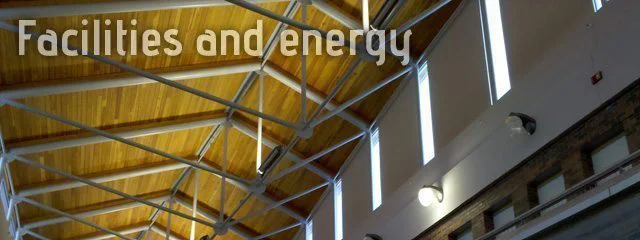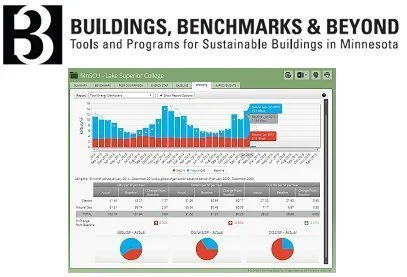
American College & University Presidents’ Climate Commitment (ACUPCC)
LSC was an early signatory to the American College and University Presidents’ Climate Commitment, and in 2011, completed a Sustainability Plan of Action (SPA) which set a goal to reduce carbon emissions 50% by 2030, based on 2009 baseline data. The Commitment also makes LSC responsible for bi-annual progress reporting to the ACUPCC.
Tracking Emissions
LSC tracks and reports all energy and water use data to the State of Minnesota’s B3 Benchmarking energy management system database on a monthly basis. Since baseline data was collected in 2009, LSC has increased its physical footprint by 10 percent, but reduced total energy consumption by over 5 percent through ongoing Guaranteed Energy Service Projects and various facilities upgrades including indoor lighting retrofits, automatic controls, and parking lot lighting upgrades. Most recently, LSC completed a large scale boiler and hot water heating upgrade, increasing heating efficiency by almost 25 percent for the entire main campus. More details on project-specific details can be found on the Sustainability Council blog.
LSC Strategic Plan and Policies
LSC’s latest Strategic Plan supports the campus SPA and sets a goal to “decrease energy consumption by eight percent on a per square foot basis over four years”. The campus has also adopted Sustainable Purchasing (5.15) and Efficient Use of Water, Energy, and other Resources (5.16) Policies. More information about the implementation of these policies can be found on the sustainability blog.
Leaders in LEED
In 2007, Lake Superior College led the way in higher education green building design by constructing the first LEED certified building in the Minnesota State system. LSC completed its second LEED project, a 36,000-square-foot Health and Science building, in 2012.
DTA’s UPASS Program
LSC has been part of Duluth Transit Authority’s UPASS Program since 2008, and ridership has increased each year since then. About 150,000 riders use this program annually, reducing the number of single commuters. As a commuter campus, vehicle travel makes up more than 50% of our overall CO2 emissions. We’ve also designed campus access points to support non-motorized modes of transportation from Trinity Road and adjacent neighborhoods.
Recycling
Through Waste Management, LSC recycles #1 through #7 plastics, aluminum, glass, paper, magazines, tin, and cardboard. Through separate programs and in separate containers, we collect plastic wrap and bags, laser, ink, and toner cartridges and cell phones. Find more on LSC’s recycling efforts on the sustainability blog site.
Campus Composting
Worm composting, or vermiculture, uses red wiggler worms to turn all of LSC’s pre-consumer kitchen scraps and coffee grounds into nutrient rich soil. The soil is then used to start seedlings for LSC’s annual plant sale. Proceeds from the plant sale support student scholarships through the LSC Foundation. The composting project is a collaborative effort between the LSC Café staff, our maintenance crew and dedicated Sustainability Council members. Additionally, 2015 marked the beginning of a collaboration with Western Lake Superior Sanitary District, where LSC became the newest Community Compost Drop Site for their home composting program.


